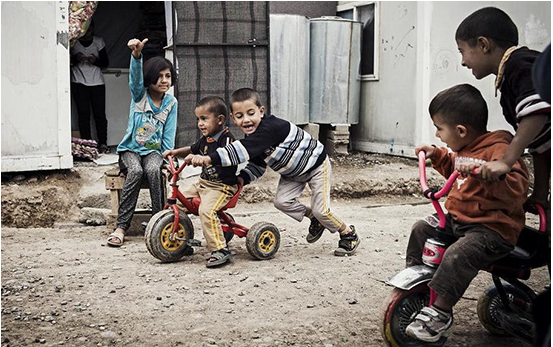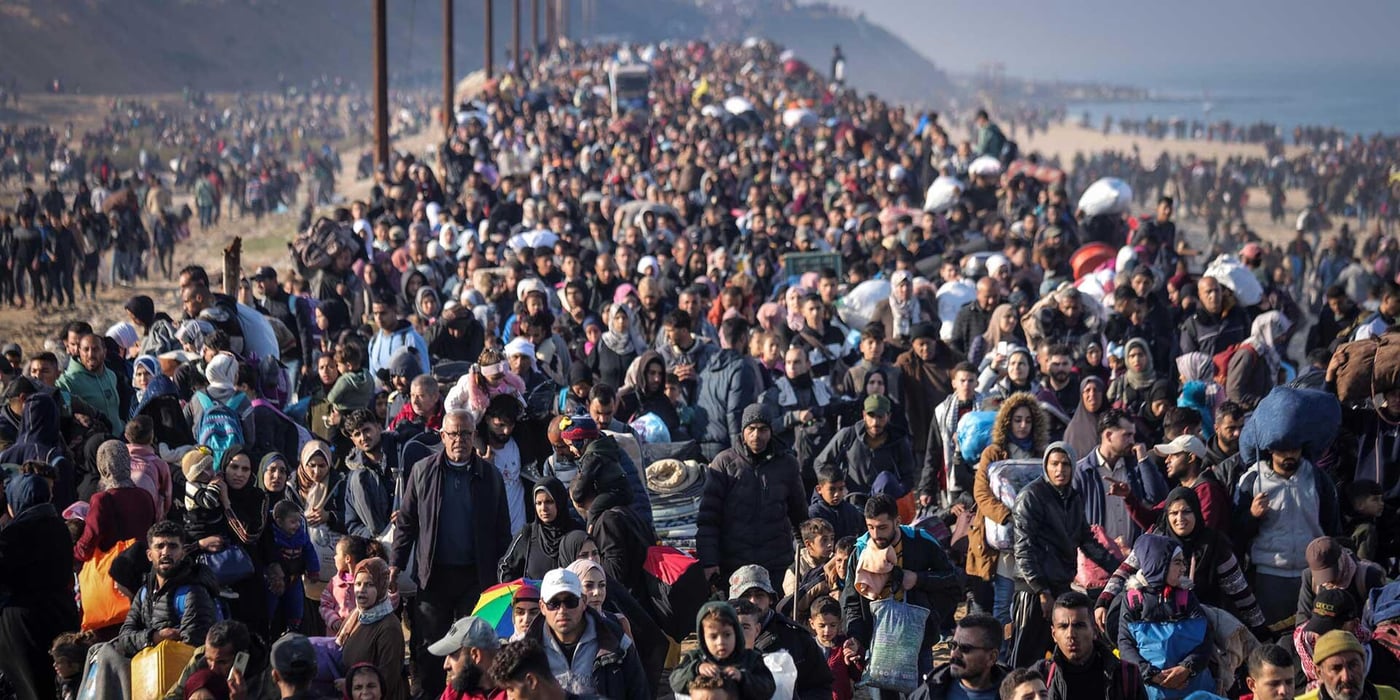
With no end to the conflict in sight and no prospect of safe return home, the new deal must provide more investment in Syria’s neighbours, which host more than 4 million refugees, and an end to restrictions that prevent refugees from working and in some cases living legally in these countries. At the same time, it must protect and strengthen their right to seek asylum.
“Many refugees are currently being condemned to a life in legal limbo with an array of restrictions which leave them in fear of arrest, detention and deportation,” said the Secretary General of Norwegian Refugee Council Jan Egeland. “Their living conditions are deteriorating dramatically, forcing refugees to adopt extreme measures to cope, including increasingly to return to the warzone they fled or to risk their lives crossing to Europe. We need to help the host countries give refugees the opportunity to live dignified lives and make a positive contribution to the communities hosting them.

Children in Qushtapa camp, Kurdish Region, Iraq. Photo: Klaus Bo Christensen/DRC
The agencies argue that a new, creative long-term approach is needed. With the right help from international donors, Syria’s neighbouring governments should develop policies that allow refugees to better support themselves financially without the risk of arrest by authorities. This would also allow refugees to contribute to the economy of the communities hosting them.
Unable to afford rent or food, and relying on dwindling aid, refugees are pushed into a spiral of destitution and debt. Some 70 per cent in Lebanon lack the documents needed to stay in the country legally, and many refugees in Jordan outside of camps are struggling to access medical and education services because they lack updated documents.
“For over four years now, refugees have been living hand to mouth, relying on humanitarian aid, not knowing where the next meal comes from,” said Oxfam’s Executive Director, Winnie Byanyima. “Experienced carpenters, farmers and teachers, among others, who we often meet are struggling to keep a roof over their heads as they scrape money together to pay rent. Their skills should be put to good use, to allow them to provide for their families and support the economies of the countries hosting them. New jobs could also benefit the millions of Jordanians, Lebanese, Turkish, and Iraqis who are facing this crisis too."
“We risk losing a whole generation of young Syrians – the same generation that will have to rebuild Syria once the conflict is finally over. With adults unable to earn a living, more and more children end up in work. Hundreds of thousands of children are missing years of education as the school systems in neighbouring countries are bursting at the seams and need much greater support,” said Misty Buswell, Regional Advocacy Director at Save the Children.
“The international community needs to realise that, rather than a burden, as refugees are often wrongly portrayed, the evidence points to the contrary: that refugees who are legally able to work can make positive contributions to host economies with their diverse skills and experience,” said Peter Klanso, Danish Refugee Council Middle East and North Africa Director.
Even with the right investment and policies, the scale of the crisis means that the most vulnerable refugees will need asylum outside of the region. Rich countries should provide a safe resettlement option for at least 10 per cent of refugees who are most in need, but they have only pledged to accept less than three per cent so far and waiting time is far too long.
Signatories:
Care, Danish Refugee Council, International Rescue Committee, Norwegian Refugee Council, Oxfam, Save the Children and World Vision International
Press Contacts:
Karl Schembri,
NRC Regional Media Advisor, karl.schembri@nrc.no, +962 7902 20159
Joelle Bassoul,
Oxfam Media Advisor on the Syria response, jbassoul@oxfam.org.uk, +961 71525218
Alun McDonald,
Save the Children Regional Media Manager, alun.mcdonald@savethechildren.org, +962 791 799 287
Rowena McNaughton,
DRC Regional Communication Officer, rowena.mcnaughton@drc-mena.org, +962 7969 08959



